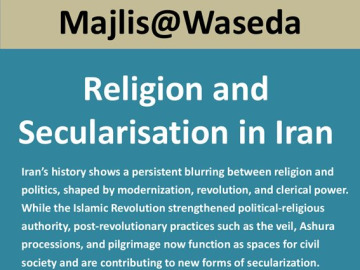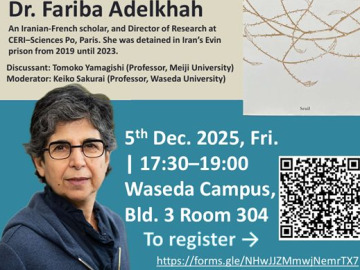Luciano Zaccara
Gulf Studies Center, Qatar University
March 11, 15:00-16:30
Waseda University Building 22, Room 601
Donald Trump’s second presidency presents significant challenges for Iran. His renewed maximum pressure policy seeks to extract greater concessions on Iran’s nuclear program, while a potential US-Russia rapprochement could weaken Tehran’s growing partnership with Moscow—especially after Iran’s entry into BRICS.
Regionally, Iran faces setbacks. The military defeats of Hamas and Hezbollah, the fall of Assad in Syria, and underwhelming missile performance against Israel undermine its influence. Meanwhile, US-Saudi ties are strengthening, with potential Saudi-Israel normalization and military cooperation that could further isolate Iran.
Despite these challenges, Iran retains strategic options. BRICS membership offers alternative economic and diplomatic avenues, while potential direct negotiations with Trump for a JCPOA 2.0 could ensure territorial security in exchange for scaling back the axis of resistance.
Though unpredictable, Trump has shown little interest in military intervention. Iran must now assess its policy choices: how to counter US pressure, leverage remaining strengths, and navigate shifting regional dynamics. The coming years will test Tehran’s ability to adapt to a transformed geopolitical landscape.
Please pre-register if you wish to attend at: https://forms.gle/NHwJJZMmwjNemrTX7





